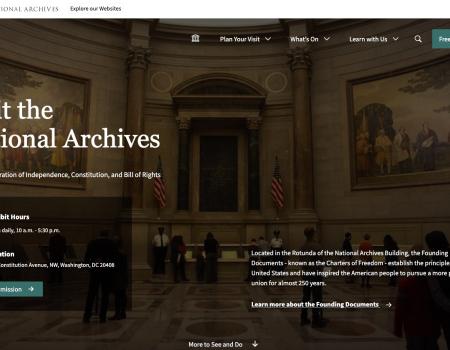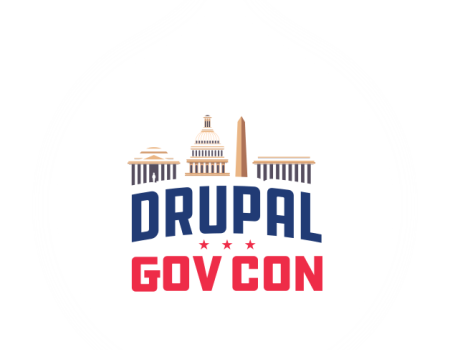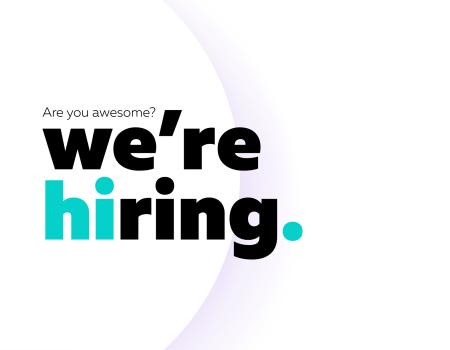The Agile Podcast Episode 6: Drupal Developers, How to Hire and Who to Hire
Migrating a large site out of Drupal 7 will be a herculean effort …
Well, maybe not herculean, but certainly time consuming and expensive. You’ll likely need to hire more Drupal developers because your current ones are busy maintaining or adding functionality to your existing site. So who do you hire? On today’s episode of the show, Blake and Brie talk about Acquia certifications and finding agile developers.
Transcript:
Blake Newman [00:00:06] From Washington, D.C., I'm Blake Newman.
Brie Ripley [00:00:09] I'm Brie Ripley, and this is The Agile Podcast where we explore the stories and people behind agile Web solutions.
Blake [00:00:17] So we spent the last few weeks talking about Drupal 7's end of life, how to approach migration in an agile way, the alternatives to Drupal 7 and where to migrate.
Brie [00:00:26] Today we talk about how to migrate and more importantly, who should migrate your Drupal 7 site.
Blake [00:00:34] And every organization is different. Some have in-house developers, while others rely on contractors. Even if you have in-house developers, they may have their hands full. Just keeping things working.
Brie [00:00:44] Yeah. You know, just like kind of doing their jobs.
Blake [00:00:47] And in that case, organizations may need to contract out the Drupal migration because it requires an intense surge of energy to get the job done. So today we'll talk about finding and hiring contractors to migrate your Web site. Brie, you run D7 on your Web site, do your developers have the capacity to take on an extra task like a migration?
Brie [00:01:08] I mean, the answer is kind of. They have their hands in a lot of different things for sure. But, you know, they're not looking forward to the migration.
Blake [00:01:17] No, it's a huge effort. And since D7 is going away, not only do you have to upgrade the content management system, which is a Herculean effort in itself, but management may want to make some changes to the design, which adds even more work. It's like triple the work. Obviously, there won't be enough time or money to do everything you want. So, you'll need to prioritize.
Brie [00:01:38] That's where agile comes in. It's a method for prioritizing.
Blake [00:01:42] In an ideal world, you would freeze everything seeking migrate the site out of Drupal 7. But that's not always possible to wait for the launch of a new Web site to make changes.
Brie [00:01:52] Oh, yeah. So, let's just say, for instance, you work at a global health nonprofit and you need to migrate. But then a pandemic happens.
Blake [00:02:00] Like yourself. Good example. You can't just freeze your site for six months in the middle of a pandemic while you migrate. Six months is like an eternity during a pandemic. Add to that everything you do in D7 needs to be redone in the new CMS. So, whatever changes you make in these seven while migrating to debate is a duplicate effort which adds more to the workload.
Brie [00:02:21] Yikes.
Blake [00:02:22] Yeah. And keeping track of all these changes, as well as the changing conditions the world around us, that can get complicated. Carlos, who we've heard from in the past, is a Drupal developer at Agileana
Carlos Fernandez [00:02:32] In a perfect world, you should focus on one single thing.
Blake [00:02:36] Let's say, like migration.
Carlos [00:02:38] That's not possible with big projects that need more features to be implemented.
Brie [00:02:45] So there's a lot going on during a migration. An in-house Drupal team can probably hardly keep up with everything. Outsourcing will likely be inevitable.
Blake [00:02:56] Right. It takes almost as many people to migrate as it does to maintain a Drupal site, sometimes even more. So, some organizations won't really have a choice but to contract that work out. Carlos says assembling a team to migrate is one of the first things you should do when starting a migration.
Carlos [00:03:10] The difficult process of like finding a good set of developers to put out a team that can handle like migrating a site, is also I think a factor. If you don't have the team, if you don't have the brainpower, it's going to be difficult to even start like planning on migrating a huge site.
Brie [00:03:32] So, you outsource. But how do you find and evaluate competent Drupal developers? How do you know if they are truly qualified and experienced?
Blake [00:03:41] I'm going to introduce you to Ashraf Abed. He's a Drupal developer who's worked on a lot of big projects. He runs a Drupal school called Debug Academy. But his story with Drupal starts when he was a software engineer working on a security clearance for government contractor.
Ashraf Abed [00:03:55] That's a bit of a funny story. I was working as a software engineer at Northrop Grumman and I was told my security clearance would take two years to process. So, they essentially temporarily furloughed me.
Blake [00:04:09] But in the meantime, Ashraf got a call from a random recruiter.
Ashraf [00:04:12] Asking if I knew trouble. And I said it depends on when the interview is. He said he could push it back two weeks. So, I spent those two weeks. I picked up a pro Drupal development book and I read it and passed the interview and landed the job. And that's essentially when I heard about Drupal for the first time. And I've been doing it full time ever since.
Brie [00:04:37] And you just learned Drupal in two weeks and became an expert in it. I'm not mad. I'm not mad.
Blake [00:04:43] Well, not exactly. It's not like Neo from The Matrix where all of a sudden it's like, I know kung fu. He didn't really know about the community for a long time. The first job he had, he built all the custom modules on his own, which really isn't best practices.
Brie [00:05:02] And best practices in Drupal are really important, like, sure, you can teach yourself Drupal, but the way you code something may be totally different than the way someone else does it. When you switch off on a project, using the same method will make things easier.
Blake [00:05:18] Yeah. For example, in the early Drupal days, some developers would put content or functionality into the templates. Problem is, whenever the next developer comes by and changes the template, you've lost all your content and functionality. So over time, the community realized that the best practice was to separate content and functionality from the template.
Brie [00:05:36] Yeah, and an open source community. They develop a culture and standards and best practices that lead to the creation of high-quality code.
Blake [00:05:45] Ashraf says that this was the shortcoming of learning Drupal from a book.
Ashraf [00:05:49] Being self-taught from a book meant I didn't meet a single person from the community within the company. I really had no mentors. It was a very small company, and I was the only developer on a Drupal projects for about two years. And let's just say I wrote a lot of custom modules because when you read a book that teaches you how to make modules in Drupal, you don't realize ... or at least I didn't realize you should be finding modules on Drupal.org.
Brie [00:06:20] Yeah, yeah. I can relate to this for sure. On the mentorship aspect, when I first started out in public radio, my mentor connected be with listservs, resources and just so many people in radio who are willing to generously offer me their time and advice. I had so many coffee dates. So, Ashraf could do his Drupal job, but he wasn't always tuned into what was going on in the Drupal community.
Blake [00:06:43] And he was, at times, just hacking it. Not necessarily using best practices, but still getting the job done. Debug Academy was created to teach best practices and to introduce developers to the community.
Ashraf [00:06:55] Sure I was self-taught and I got a job, And then two to three years later, I realize, oh, I actually kind of didn't learn it correctly. And so, I thought, you know, it's not enough to tell people to go teach themselves.
Blake [00:07:08] So he runs the school. He's a highly sought-after developer. He's worked on some top-secret government projects and in the past even worked on Whitehouse.gov.
Brie [00:07:17] You know, just a little site that we talk about from time to time.
Blake [00:07:20] Right. It was one of the turning points for Drupal when the Obama administration decided to power WhiteHouse.gov with Drupal. It was like Drupal’s coming out party. It legitimized it as an enterprise level CMS, which is where D8 and D9 are heading today.
Brie [00:07:37] OK, so speaking of Drupal 8 or 9, let's say I'm contracting someone out to migrate there. How do I know if someone is using best practices on a Drupal site?
Blake [00:07:47] I mean, one way is to go through someone like Debug Academy. They have a great track record. Ashraf says that if you're having trouble finding developers, you can just contact him. They have a mentorship programs, too. But you can also look for certifications, specifically Aquia certifications.
Brie [00:08:04] And Aquia is a big deal in the Drupal community. They were started by Drupal's founder.
Blake [00:08:07] Dries Buytaert.
Brie [00:08:10] Yeah.
Blake [00:08:11] And they host big Drupal sites, enterprise level sites, multi-million-dollar triple Web sites. But they also have the certification program. Gordon, who's a Drupal architect, has some of the most highly coveted Acquia Certifications in the world. He's a double grand master, meaning that he's a grandmaster in both Drupal 7 and 8. They're less than 50 people in the world with those qualifications. Gordon remembers things as kind of a wild west of Drupal about a decade ago.
Gordon Makely [00:08:38] Back in the day, I want to say I was at a consultancy around 2010, 2012.
Blake [00:08:43] That's Gordon.
Gordon [00:08:44] All sorts of development shops would say, yeah, we do Drupal, no problem. And they would bid on projects. And then this place I was at, invariably we weren't the cheapest, so we wouldn't get a project. But then invariably, a month later, we would get a call saying, yeah, the people they went with, you know, who underbid us by X number of dollars got the project and they really didn't know Drupal and they kind of shot themselves in the foot. And the client has been just, you know, is no longer happy with them. And so, they came to us.
Brie [00:09:13] So they didn't know Drupal.
Blake [00:09:20] Or at least not as well as the client would like. And there was a high demand for Drupal developers. So Acquia came up with some test and certifications because they were having to put developers, too, and needed verifiable proof that they were getting the real deal.
Gordon [00:09:29] So they came up with a certification program so that they could start, you know, testing these people that said they knew Drupal so that, you know, they would actually know that people actually knew what they were doing.
Blake [00:09:42] And that's the Aquia certification. In fact, when I hire Drupal developers, I look first for grandmasters. Those are like full stack developers. They've mastered the front end and the back end. If they don't already have an Acquia certification, I make earning that certification a prerequisite to getting hired. That's how important these certifications are to me.
Brie [00:10:01] And the alternative to getting an Acquia certification is what?
Blake [00:10:06] Pinky promise, I guess. You just have to trust that when people say they can do this or have done this, they're telling the truth.
Brie [00:10:12] Got it. And if I'm hiring someone to migrate a site, I can look at projects they've done in the past, which might look great, but I might not know if they're following best practices, which might mean a headache down the road. They might be a Drupal hacker.
Blake [00:10:26] Exactly. Drupal hacker. Which can be really dangerous because if you don't know what you're doing, then your site could crash. It could get hacked. It could be very difficult perform any kind of root cause analysis in a short period of time. And for Acquia certifications, this is where best practices come into play. It's important for developers to know the right way to do Drupal. Gordon says that, on Acquia certification tests you might be presented with multiple options for doing something. But there's only one right answer.
Gordon [00:10:54] There's certain questions where, you know, there's certain answers that are clearly wrong and there's a couple that could be right, but they weren't the best answer. So, there's, you know, there's a couple of different ways to do anything in trouble. So, it looks you might have chosen the one that was not exactly accepted answer, but it would still get the job done.
Brie [00:11:16] OK, so do I need an Acquia certified developer?
Blake [00:11:20] Well, I'm sure you don't need that tall, short Starbucks macchiato, whoopachino, with caramel cream sauce but people order it anyway.
Brie [00:11:26] I feel personally attacked. Okay. Now, what about a certification for someone who is easy to work with and communicative?
Blake [00:11:38] Like you? Ha. Maybe one day.
Brie [00:11:40] Yeah, I guess you can't test for that kind of genius.
Blake [00:11:43] Well, I mean, that's a good point. This also brings up the subject of leadership, particularly servant leadership. It's one thing to hire an Acquia Drupal grandmaster, but you also need a leader who can remove obstacles. So, developers can do their best work. This is where agile comes into play. The whole concept of agile software development is meant to ensure more successful outcomes. So, Brie, how do you, the client, find professionals who you're able to work with?
Brie [00:12:13] Well, let me tell you, they oftentimes just cold outreach via LinkedIn to me, mostly based on, you know, my job title. They probably are looking for digital marketing officers who are savvy and aware that Drupal seven's expiring.
Blake [00:12:28] So, when people contact you on LinkedIn, then, I mean, how do you know they're legitimate? How do you know that the qualified?
Brie [00:12:34] Yeah. Good question. You know, the first thing that I do is I check out their LinkedIn. And then I click on a couple of links. If I'm interested in exploring more about what kind of work they do and if they might be a good consultant fit for the work that I'm doing at my organization and how I judge a Web site by its cover for sure.
Blake [00:12:56] So you look at their past performance and the Web sites they say they worked on, I guess.
Brie [00:13:00] Yeah. I check out their portfolio. I check out to see what they look like. I'm you know, I'm not somebody that judges a book by its cover, but I judge a Web site by it.
Blake [00:13:08] OK, well, in my organization, I look not only for Acquia certifications, but also agile certifications. If I'm hiring a project manager, I would like them to be a certified scrum master, certified scrum product owner, and a scaled agilest.
Brie [00:13:23] OK.
Blake [00:13:24] And I would like to see that scrum master also have an Acquia certification, which means that they understand the basics of how Drupal works and is configured.
Brie [00:13:31] Got it. Is that all?
Blake [00:13:32] Just getting started. Ideally, every person on the team will have read The Elements of Scrum and the Agile Samurai, two of the best books ever written on agile. And it just helps keep everybody on the same page.
Brie [00:13:44] Now, is that all?
Blake [00:13:45] Pretty much. I mean, I can get clues where they linked in profile about how agile they are if they write things like sprint, Kanban, retrospectives, then I get the feeling that are agile oriented. Ultimately, I want a team of agile enthusiasts.
Brie [00:14:02] OK. So now what? Like you understand whether or not you can do things in house, if you decide to outsource, you understand that you may need to hire one or two people or perhaps an entire scrum team. So, what's next?
Blake [00:14:15] Well, assuming you decide to outsource a project like this, you're going to need to talk about money in some cases. A lot of it.
Brie [00:14:22] Yeah. Least favorite subject.
Blake [00:14:24] So in future podcasts, we'll talk about how to estimate the cost of migration.
Brie [00:14:28] And the amount of time to do with migration.
Blake [00:14:30] So smash the subscribe button on the Agile …
Brie [00:14:32] Wait, wait, wait, wait, wait. We said we were going to talk about how to migrate and who would migrate. So far, we have talked about the who, but not the how.
Blake [00:14:41] Oh yeah, you're right. Let me just say a couple of things at a high level when it comes to migrating out of Drupal 7 or replacing a content management system entirely. There are three basic components to the Web site. One, the theme.
Brie [00:14:55] Which represents the design of the templates.
Blake [00:14:58] Two, the configuration.
Brie [00:15:00] Which represents permissions and settings.
Blake [00:15:02] Three, the functionality.
Brie [00:15:04] Which represents actions people can do.
Blake [00:15:07] And I guess there's a fourth, the content.
Brie [00:15:10] Which represents information, data and media.
Blake [00:15:13] When you go from Drupal 7 to Drupal 8, 9 or 10 or to another CMS, like WordPress, or outside of the CMS world altogether, pretty much the entire Web site needs to be rebuilt.
Brie [00:15:23] You might be able to automate the migration of the content. Maybe.
Blake [00:15:26] Maybe.
Brie [00:15:29] But pretty much everything else needs to be redone.
Blake [00:15:31] A front end developer needs to rebuild the theme. A back end developer needs to rebuild the functionality a sys admin needs to configure the settings. And you'll need a team of people testing the site to ensure that everything is working as it should before you relaunch.
Brie [00:15:45] At a minimum, this could take weeks. More likely, it could take months. Worst case, it could take years.
Blake [00:15:54] So in future podcasts, we'll talk about how to estimate the cost of migration.
Brie [00:15:57] And the amount of time to do a migration.
Blake [00:16:00] Now you can smash that subscribe button on The Agile Podcast, on Apple podcast, or wherever you get your podcast.
Brie [00:16:05] And won't you please leave a review while you're at it. It would help us so very much. Thanks for listening. And until next time.
Blake [00:16:13] Talk to you soon.
Blake [00:16:16] The Agile podcast is produced by Agileana, a DC based Web development company. To learn more about Agileana, you can visit our Web site, Agileana.com or sends an email to [email protected].



